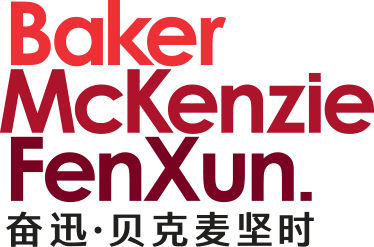In the field of transfer pricing (TP), the State Taxation Administration (STA) published 2021 Advance Pricing Arrangement (APA) Annual Report, describing the latest mechanism, procedures, and implementation of APA program in China, which is of meaningful reference value for multinational companies (MNCs) operating in China, especially the ones with any intention to enter into APAs with China's tax authorities. Meanwhile, Shenzhen customs and tax authority have established a coordination scheme to align the customs valuation and transfer pricing practices on a trial basis. Such action is a beneficial attempt to address the practical challenges the businesses have long faced in ensuring compliance with both customs and tax requirements. These topics are discussed in section 2.
In section 3, we will discuss China's depository of its instrument of approval for the Multilateral Convention to Implement Tax Treaty Related Measures to Prevent Base Erosion and Profit Shifting (MLI). MNCs with cross-border transactions should keep the MLI in mind when evaluating their tax treaty positions. Furthermore, the Double Taxation Agreements (DTAs) between China and Congo, Angola and Rwanda have come into effect on 1 January 2023. The key terms thereof are also discussed in section 3.
In regards to value-added tax (VAT), the Ministry of Finance (MOF) and the STA issued a series of policies and implementation rules in 2022, allowing qualified enterprises to apply for the refund of excess input VAT to ease the cash burden on enterprises and promote the development of small and micro-size enterprises as well as the enterprises in key industries. More importantly, the draft of PRC VAT Law has been submitted to the Standing Committee of National People's Congress (NPC) for the first round deliberation. And it is expected to be officially promulgated in 2023 the earliest. These topics are discussed in section 4.
With respect to individual income tax (IIT), the preferential tax policy for equity incentive income has been unsurprisingly extended for one additional year and will expire by the end of 2023, as same as the preferential tax policies for annual bonus and expatriates' allowances. Meanwhile, to address the challenges brought by the nation's population aging issue, the government has initiated the private pensions regime as a supplement to the existing public pensions and annuity primarily sponsored by the state and employers. The tax authority has also released preferential tax policy in this regard to promote the implementation of private pensions. Additionally, the governmental authority has newly added the nursing expenses for children under 3 years old to the existing list of additional special deduction items for IIT purpose. Such move is also designed to encourage larger families to deal with the issue of population aging. These topics are discussed in section 5.
With respect to enterprise income tax (EIT), China's tax authorities have made efforts to promote the development of real estate investment trusts (REITs) in the infrastructure sector via preferential tax policies. In addition, the government has provided further tax incentives to enterprises investing in the basic research to encourage scientific and technological innovation, which is also consistent with the nation's strategy for scientific development in response to the rapidly changing international landscape. The details of those policies are discussed in section 6.
In the 2021 China Tax Update released last year,1 we shared our observations and key takeaways from the existing regional preferential tax policies in some key areas, including Hainan, Qianhai, Lin'gang and Hengqin. In 2022, the local governments have further elaborated on the relevant criteria for certain tax incentive policies and published several implementation rules to regulate the local enforcement. In addition, the State Council released the development plan for Guangzhou Nansha in 2022, adding Guangzhou Nansha into the existing list of regions with local preferential tax policies. We have accordingly updated the summary of relevant tax policies in those regions and will discuss the details thereof in section 7.
Last but not least, in section 8, we will discuss the implementation rules released by tax authorities, which clarified some practical issues to smoothen the implementation of the PRC Stamp Duty Law ("SD Law"). Some of the covered issues are particularly relevant to cross-border transactions. MNCs are advised to consider the relevant PRC SD implications in structuring their transactions.
Click here to access the full alert.
1 Available here.

Baker & McKenzie FenXun (FTZ) Joint Operation Office is a joint operation between Baker & McKenzie LLP, an Illinois limited liability partnership, and FenXun Partners, a Chinese law firm. The Joint Operation has been approved by the Shanghai Justice Bureau. In accordance with the common terminology used in professional service organisations, reference to a "partner" means a person who is a partner, or equivalent, in such a law firm. This may qualify as “Attorney Advertising” requiring notice in some jurisdictions. Prior results do not guarantee a similar outcome.
This client alert has been prepared for clients and professional associates of Baker & McKenzie FenXun (FTZ) Joint Operation Office. Whilst every effort has been made to ensure accuracy, this client alert is not an exhaustive treatment of the area of law discussed and no responsibility for any loss occasioned to any person acting or refraining from action as a result of material in this presentation is accepted by Baker & McKenzie FenXun (FTZ) Joint Operation Office.

